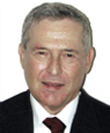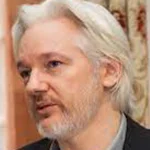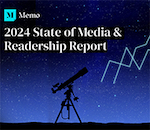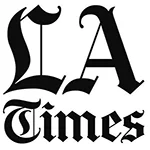 When I was a young teenager I was occasionally asked, “What do you want to be when you grow up?” My answer would bring a quizzical look to the questioner when I replied, “I want to be a pandit,” a word meaning a “wise Hindu person” that my geography teacher once used.
When I was a young teenager I was occasionally asked, “What do you want to be when you grow up?” My answer would bring a quizzical look to the questioner when I replied, “I want to be a pandit,” a word meaning a “wise Hindu person” that my geography teacher once used.
Over the years, the word evolved into “pundit,” which I define as “job security,” because pundits are never wrong, despite being consistently wrong.
Many segments of our society act as if they are “pandits.” They include the wealthy, even though many inherited their riches, because as Tevye sang in Fiddler on the Roof, “And it won't make one bit of difference if I answer right or wrong. When you're rich, they think you really know!”
CEOs, financial analysts, economists, sports analysts, odds makers, in-laws and many PR people (especially crisis communications specialists) and politicians also are in the “know it all” category.
But political pundits, both in the printed press and on TV, are on top of the food chain when it comes to being convinced that they are correct about every topic.
My first job in public relations was with a political agency, where I worked on local, state and national campaigns and I still am a political junkie. As such, I read and watch pundits discuss local, state and national politicos way too often. But because I believe that TV news reporting is abridged, and too often inaccurate, I read the New York Times, the Wall Street Journal and USA TODAY every morning in order to get the complete story.
Topping my list of ”those in the know,” whose comments often prove she doesn’t know, is Peggy Noonan, because she sprouts her opinions both on TV and in a column for the prestigious WSJ.
Unlike many pundits who believe that shouting on TV or radio, or spewing outrageous comments is the way to build a following, Ms. Noonan is always calm, collected and talks and writes in a manner that should serve as a role model to young children. Unfortunately, the way she comes to her political conclusions make me scratch my head.
• Just prior to the reelection of President Obama, Ms. Noonan predicted a Romney win based on the number of lawn signs she saw favoring the loser.
• In a subsequent column, she wrote about how bad the economy was doing based on her walking through a Pittsburgh airport to an airport hotel.
• In one column, Ms. Noonan read the minds of Americans (usually the province of politicians who say, “Americans want,”) by writing,” I think we’re all agreed the president is fading…” and went on to explain what she considers the shortcomings of the president and his administration. While I agree with Ms. Noonan about the president’s shortcomings, most of my friends and family disagree. Who to believe? A puzzlement. To be fair, Noonan also upsets many Republicans with negative columns about past and this year’s GOP presidential candidates.
Ms. Noonan has plenty of self-assured egotistical pundits on the left, led in my opinion, by Chris Mathews of MSNBC.. But none of them have the prestigious sound box that matches the WSJ, I thought, until I read an Op-Ed column by Roger Cohen in the NYT.
In a column published in 2013 devoted to the United States-Iranian nuclear deal, Cohen wrote, “Let us be clear. This is the best deal that could be had.” Well, if a pundit said it, it must be correct, because pundits are never wrong, even when they are. Does that mean that all the pundits who disagree with Cohen must be wrong? Another puzzlement.
There are right wing pundits. There are left wing pundits. There are pundits that claim to be impartial. But they all have two things in common: “In my opinion,” is never in their vocabulary and, more important, they have job security.
So to all my colleagues in the public relations field don’t worry if the opinions you give to clients don’t pan out. If you’re wrong enough times, you can always apply for a job as a pundit.
* * *
Arthur Solomon, a former journalist and senior vice president/senior counselor at Burson-Marsteller, is a frequent contributor to public relations and sports business publications, consults on public relations projects and is on the Seoul Peace Prize nominating committee. He can be reached at [email protected].


 Trump Media & Technology Group today reported a $58.2M net loss on $4.1M in 2023 revenues, a disclosure that drove its stock price down 22.6 percent to $47.96.
Trump Media & Technology Group today reported a $58.2M net loss on $4.1M in 2023 revenues, a disclosure that drove its stock price down 22.6 percent to $47.96. Barry Pollack, an attorney at Wall Street’s Harris St. Laurent & Wechsler, has registered Julian Assange as a client with the Justice Dept. “out of an abundance of caution.”
Barry Pollack, an attorney at Wall Street’s Harris St. Laurent & Wechsler, has registered Julian Assange as a client with the Justice Dept. “out of an abundance of caution.” Paramount Global to slash 800 jobs in what chief executive Bob Bakish calls part of an effort to “return the company to earnings growth"... Rolling Stone editor-in-chief Noah Shachtman is exiting at the end of the month due to disagreements with chief executive Gus Wenner over the direction the magazine is taking... The New York Times broke the $1 billion barrier in annual revenue from digital subscriptions in 2023... Press Forward is investing more than $500 million to strengthen local newsrooms.
Paramount Global to slash 800 jobs in what chief executive Bob Bakish calls part of an effort to “return the company to earnings growth"... Rolling Stone editor-in-chief Noah Shachtman is exiting at the end of the month due to disagreements with chief executive Gus Wenner over the direction the magazine is taking... The New York Times broke the $1 billion barrier in annual revenue from digital subscriptions in 2023... Press Forward is investing more than $500 million to strengthen local newsrooms. The majority of news articles are read within the first three days of publication, according to a recent report.
The majority of news articles are read within the first three days of publication, according to a recent report. The Los Angeles Times gives pink slips to 115 people or 20 percent of its newsroom staff... TIME is also laying off about 30 employees, which is approximately 15 percent of its editorial staff... The Baltimore Banner, which was launched by Stewart Bainum in 2022 after he failed to buy the Baltimore Sun, added 500 subscribers per day in the three days following Sinclair Broadcast Group's deal to purchase the Sun.
The Los Angeles Times gives pink slips to 115 people or 20 percent of its newsroom staff... TIME is also laying off about 30 employees, which is approximately 15 percent of its editorial staff... The Baltimore Banner, which was launched by Stewart Bainum in 2022 after he failed to buy the Baltimore Sun, added 500 subscribers per day in the three days following Sinclair Broadcast Group's deal to purchase the Sun.


 Have a comment? Send it to
Have a comment? Send it to 
No comments have been submitted for this story yet.